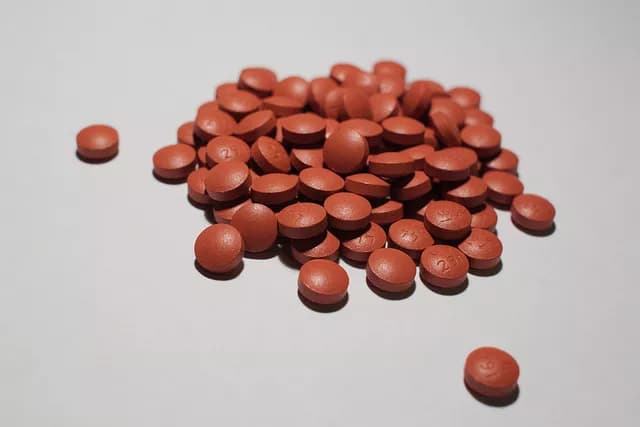
Heightened Risk Of Heart Attacks Found With Common Painkillers In Routine Use
People who use commonly prescribed non-steroidal anti-inflammatory drugs (NSAIDs) to treat pain and inflammation could be raising their risk of having a heart attack, as early as in the first week of use and especially within the first month of taking high doses of such medication, suggests a study in The BMJ this week.
Doctors and patients urged to weigh the risks and benefits of ibuprofen, diclofenac, celecoxib, and naproxen
Previous studies suggested that both traditional and COX 2 selective NSAIDs could increase the risk of acute myocardial infarction (heart attack), but the timing of the risk, the effect of dose, treatment duration, and the comparative risks between NSAIDs were poorly understood.
An international team of researchers led by Michèle Bally of the University of Montreal Hospital Research Center (CRCHUM), then an epidemiology doctoral student at McGill University in Canada, set out to characterise the risks of heart attack associated with use of oral NSAIDs under real life practice circumstances.
For their study, the researchers carried out a systematic review and a meta-analysis of relevant studies from various healthcare databases including those from Canada, Finland and the United Kingdom.
Collectively, they analysed results on 446,763 people of whom 61,460 had a heart attack.
The NSAIDs of interest to the researchers were celecoxib, the three main traditional NSAIDs (diclofenac, ibuprofen, and naproxen), and rofecoxib. To provide guidance, the researchers presented their results as probabilities of having a heart attack. They looked at various scenarios corresponding to how people might routinely use these drugs.
The study found that taking any dose of NSAIDs for one week, one month, or more than a month was associated with an increased risk of heart attack. Naproxen was associated with the same risk of heart attack as that documented for other NSAIDs. With celecoxib, the risk was lower than for rofecoxib (Vioxx) and was comparable to that of traditional NSAIDs.
Overall the increase in risk of a heart attack is about 20 to 50% if using NSAIDs compared with not using these medications. To put this in perspective, as a result of this increase, the risk of heart attack due to NSAIDs is on average about 1% annually. The type of analysis the researchers used allowed them to conclude with greater than 90% probability that all NSAIDs studied are associated with a heightened risk of heart attack.
Further analysis suggested that the risk of heart attack associated with NSAID use was greatest with higher doses and during the first month of use. With longer treatment duration, risk did not seem to continue to increase but the researchers caution that they did not study repeat heart attacks such that it remains prudent to use NSAIDs for as short time as possible.
This is an observational study based on drug prescribing or dispensing and not all potentially influential factors could be taken into account.
Although this means that conclusions cannot be made about cause and effect, the authors say that their study was the largest investigation of its type and that its real-world origin helped to ensure that findings were broadly generalisable.
The researchers also emphasise the advantages of sharing 'de-identifed' patient data as this helps making healthcare decisions that may improve patient care.
They conclude: "Given that the onset of risk of acute myocardial infarction occurred in the first week and appeared greatest in the first month of treatment with higher doses, prescribers should consider weighing the risks and benefits of NSAIDs before instituting treatment, particularly for higher doses."
Materials provided by BMJ. Note: Content may be edited for style and length.
Disclaimer: DoveMed is not responsible for the accuracy of the adapted version of news releases posted to DoveMed by contributing universities and institutions.
Primary Resource:
Bally, M., Dendukuri, N., Rich, B., Nadeau, L., Helin-Salmivaara, A., Garbe, E., & Brophy, J. M. (2017). Risk of acute myocardial infarction with NSAIDs in real world use: bayesian meta-analysis of individual patient data. bmj, 357, j1909. DOI: 10.1136/bmj.j1909
Related Articles
Test Your Knowledge
Asked by users
Related Centers
Related Specialties
Related Physicians
Related Procedures
Related Resources
Join DoveHubs
and connect with fellow professionals

0 Comments
Please log in to post a comment.